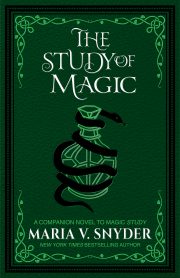Selling to Foreign Short Fiction Markets
Written by Douglas Smith
Copyright © May 2000
(links and markets last updated: June 1, 2001)
When considering potential markets for their short fiction, many SF&F writers overlook the many non-English language magazines and anthologies published around the world. This article discusses why you might want to consider these markets, and how to go about selling to them.
Why Submit to Foreign Language Markets?
Especially if you can’t read that particular language? First, it broadens the audience of readers who gain exposure to your work. If you also write novels as well as short fiction (or plan to), a resume of sales in non-English markets can assist in foreign rights sales for your longer work.
Secondly, anything you make from these sales is found money. Yes, you will generally get less for these reprints than for selling first rights in an English market, but remember that you can sell your reprints in multiple countries and languages. My foreign language sales have ranged from $20 to $200, averaging about $100 per sale — so you can easily pick up another few hundred dollars per story. That being said, many of these markets also pay only in contributor copies.
Finally, it’s fun to say that you’ve been published in X languages and Y countries. And if our writing can’t bring us some fun, then why are we doing it?
How to Select Foreign Language Markets
Rule 1: Don’t submit a story to any foreign language market until you have first sold it to an English-language market. Many of the top English genre fiction markets have foreign language editions or will ask for an option on foreign language rights. Selling a story to a non-English market first could jeopardize a more prestigious and lucrative English first-rights sale. In addition, it’s a lot easier to sell to a foreign language market if your story has the credentials of a major English market.
So that means you are looking for non-English markets that will accept reprints of stories that have appeared in an English market somewhere in the world. That is by no means the rule: many foreign language markets publish only local authors.
Rule 2: You are looking for markets that will accept unsolicited submissions. Most foreign language magazines publish reprints from English markets, but many make the selection of those stories themselves from a review of the top English magazines — i.e., they won’t accept a direct submission from the author. You may still end up with your story in these markets, but you have no control over the decision, beyond writing a great story and selling it to a top English market.
Rule 3: Unless you are multi-lingual, you are looking for markets that accept submissions in English and will translate your story at no cost to you. In my experience, any market that accepts submissions in English will translate at no cost. Some markets, however, will accept reprints and unsolicited submissions (rules 1 and 2), but only in the language of the magazine.
Even then, you have options. I sold a reprint to a French magazine that not only did the translation for free, but also provided me an electronic copy of their translation. That allowed me to sell the translated version to another market that only accepted submissions in French.
So the above discussion leads us to the …
Definition of a Valid Foreign Language Market:
A market that accepts unsolicited submissions in English of stories that first appeared in English language markets, and translates them at no cost to the author.
About the Author:
Doug’s stories have appeared in professional magazines and anthologies in eight countries and six languages, including Amazing Stories, Cicada, and Treachery And Treason (Penguin/Roc) in the US, Interzone and The Third Alternative in the UK, and Prairie Fire, Tesseracts 6, and Solaris(Québec) in Canada, as well as magazines and anthologies in France, Germany, the Netherlands, the Czech Republic, and Brazil. He has upcoming stories in On Spec and the anthology, North of Infinity II.
2001 John W. Campbell Award Finalist!!: Doug was a finalist on the 2001 Hugo ballot for the John W. Campbell Award, an international award given each year to the best new SF or fantasy writer whose first work appeared in a professional publication in the previous two years.


